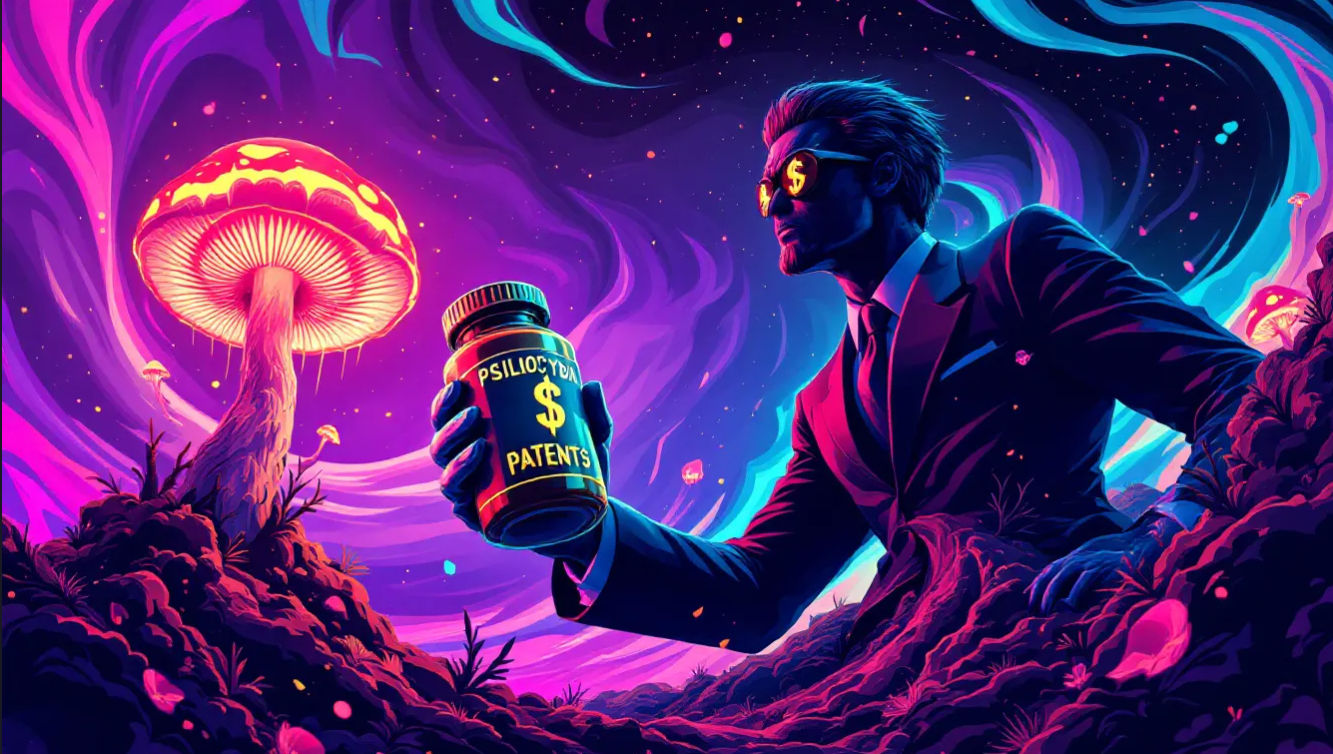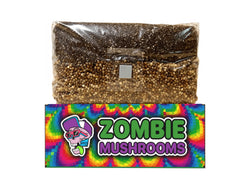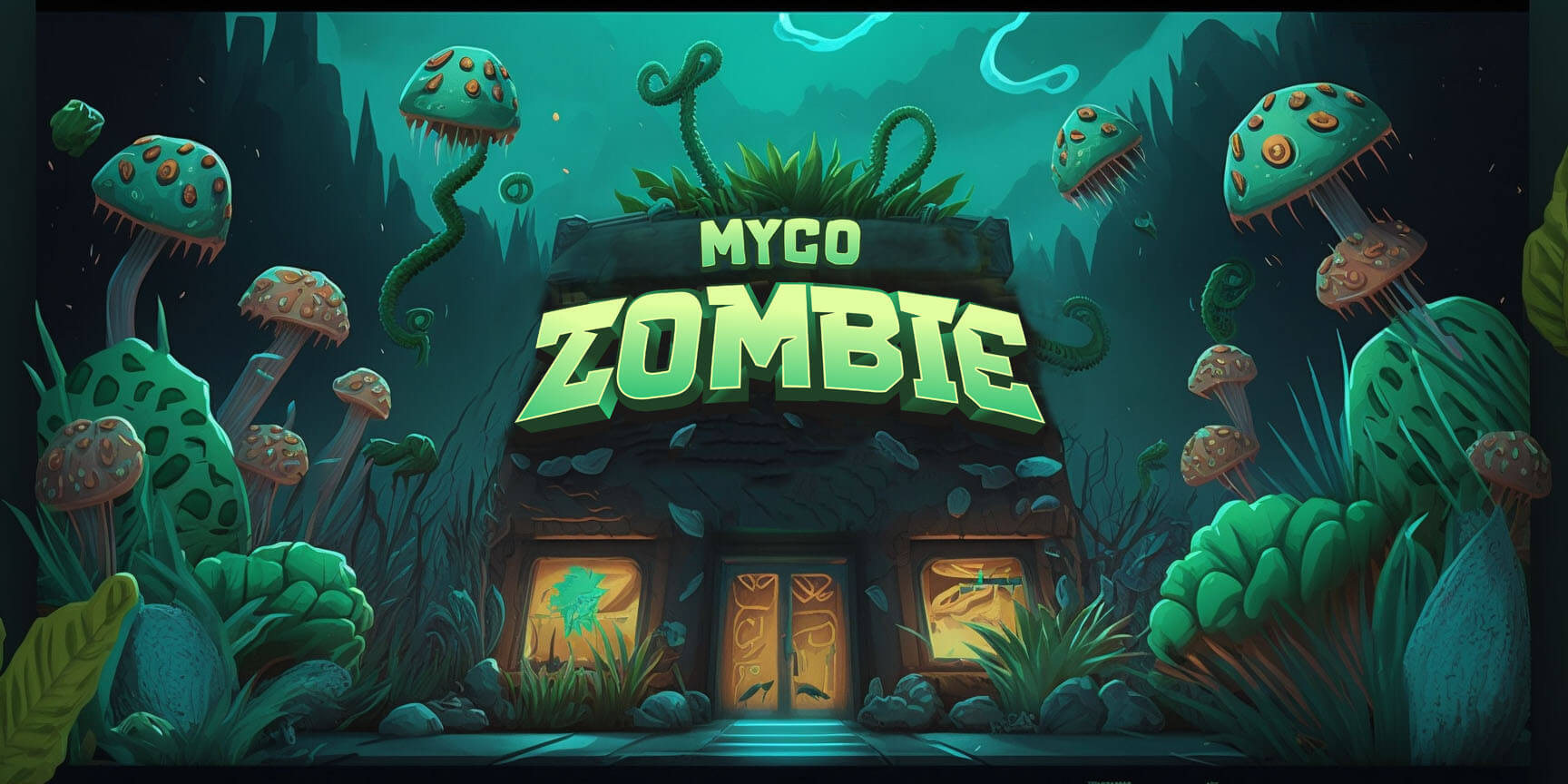- Psilocybin, the active compound in magic mushrooms, has shown promise for treating depression, anxiety, and PTSD.
- Big Pharma is filing patents for synthetic psychedelics, raising concerns about accessibility and corporate control.
- Decriminalization efforts aim to protect personal and ceremonial use against pharmaceutical monopolization.
- Psychedelic-assisted therapy is becoming mainstream, but high costs could limit widespread access.
- Home cultivation is emerging as a way to ensure public access to magic mushrooms despite corporate influence.
Magic Mushrooms and Big Pharma: Who Will Control Psychedelics?
The psychedelic renaissance is gaining momentum, with magic mushrooms at the forefront of groundbreaking mental health treatments. As scientific research confirms their potential benefits, corporate interests—especially Big Pharma—are stepping in, raising concerns over accessibility and control. The recent Adult Swim animated series Common Side Effects cleverly critiques the commercialization of psychedelic substances, sparking conversations about whether these natural medicines will remain freely available or become another tightly regulated pharmaceutical product.
What is Common Side Effects?

Common Side Effects is an animated satire created by Joe Bennett and Steve Hely, offering a thought-provoking look at the ethics of psychedelic commercialization. The series centers around Marshall, a dedicated researcher studying a Peruvian magic mushroom with seemingly miraculous medical properties. However, as he delves deeper into its potential, he encounters major obstacles—including corporate greed, regulatory red tape, and the interests of powerful pharmaceutical companies.
The show reflects pressing real-world issues, highlighting how industries often seek to gain control over natural substances, raising ethical concerns about accessibility, use, and commercialization. By blending humor with a timely critique, Common Side Effects sheds light on the larger debate around who truly benefits from the psychedelic renaissance.
Big Pharma's Complicated History With Psychedelics
Pharmaceutical corporations have historically had a precarious relationship with psychedelics. Before their prohibition in the 1970s, substances like psilocybin and LSD were extensively researched for psychiatric treatments (Belouin & Henningfield, 2018). Early clinical studies indicated their potential to alleviate depression, trauma, and substance addiction. However, growing political pressures and the War on Drugs led to their classification as Schedule I substances, effectively halting medical research for decades.
Now, as new scientific evidence supports their psychiatric applications, Big Pharma is increasingly interested in bringing psychedelics into the multi-billion-dollar mental health industry. But with corporate involvement comes concerns about patents, high-cost treatments, and restrictive regulations that may limit personal and community-led access to these substances.
What’s Driving the Psychedelic Renaissance?

Several key factors are fueling the resurgence of psychedelics, particularly magic mushrooms, in mainstream health and wellness discussions
- Scientific Advancements: Numerous studies confirm psilocybin's potential to alleviate severe depression, PTSD, and end-of-life anxiety (Carhart-Harris et al., 2021). These findings drive medical and governmental interest in re-examining psychedelic policy.
- Legal Reform: Various locations, including Oregon and Colorado in the U.S., have decriminalized or legalized psilocybin for therapeutic use. Countries like Canada and Australia also permit controlled medical access.
- Public Demand for Alternatives: Dissatisfaction with traditional pharmaceuticals has led many to seek natural, plant-based solutions. Psychedelics promise deeper healing, often without the adverse side effects of conventional antidepressants.
Big Pharma’s Growing Interest in Psychedelics
Corporations are now investing heavily in psychedelic medicine, positioning themselves to dominate what could be a multi-billion-dollar market. Major pharmaceutical and biotech companies have started filing patents for synthetic psychedelic analogs, attempting to create proprietary treatments (Jones & Shansky, 2020). While patented psychedelics could bring broader legitimacy and funding to research, they also risk monopolizing an inherently natural resource.
Some key concerns with Big Pharma’s involvement in psychedelic medicine include
- Exclusivity Through Patents: Many companies seek to patent specific formulations of psychedelics, restricting access and preventing generic production.
- Ignoring Holistic Practices: Traditional psychedelic healing incorporates set, setting, and integration—elements Big Pharma’s clinical approaches often overlook in favor of isolated compounds.
- Price Barriers: Psychedelic-assisted treatments, even if effective, may become costly due to corporate control, making them unaffordable for many patients.
This dynamic has sparked debates over whether psychedelics will remain in the public domain or become another high-cost pharmaceutical product.
The Corporate vs. Community Divide in Psychedelics
The commercialization of psychedelics has created a growing divide between corporate interests and grassroots movements advocating for personal access. While pharmaceutical companies target medical markets, community-driven initiatives push for broader decriminalization and responsible self-use.
The Corporate Model: Medicalization and Regulation
- Pharmaceutical companies and biotech startups focus on developing clinically approved psychedelics.
- Treatments require prescriptions, medical supervision, and often, high patient costs.
- Research and FDA approvals drive innovation but may limit broad access.
The Community Model: Decriminalization and Personal Use
- Activists and local grassroots groups prioritize legal rights for personal cultivation and non-medical use.
- Organizers fight against the monopolization of psychedelic access by major corporations.
- Some regions, like Denver and Oakland, have decriminalized personal use, empowering individuals rather than companies.
This ongoing battle is shaping how psychedelics will be accessed in the future—either as corporately regulated pharmaceuticals or as natural medicines available to all.
The Role of Home Cultivation in Psychedelic Freedom

One way to maintain personal access to psychedelics, despite corporate control, is through home cultivation. Enthusiasts and activists are emphasizing the importance of learning how to grow magic mushrooms as a means of self-sufficiency.
Why Home Cultivation Matters
- Prevents Corporate Monopoly: Growing magic mushrooms at home ensures access remains decentralized rather than controlled by pharmaceutical companies.
- Empowers Individuals: Home cultivation allows people to explore psychedelics on their own terms, rather than relying on expensive clinics.
- Keeps Traditional Practices Alive: Indigenous cultures have long used psychedelics for healing and spiritual purposes. Home growing helps preserve these traditions amid commercialization.
Small businesses and mycology supply companies play an important role in supporting this movement, providing spores, cultivation kits, and education on responsible use.
The Future of Psychedelics: Who Will Control Magic Mushrooms?

As magic mushrooms continue to gain recognition for their therapeutic benefits, their future remains uncertain. Will psychedelic medicine be dominated by Big Pharma, creating expensive, regulated treatments limited to the wealthy? Or will a balance be struck, where both corporate medicalization and community-driven access coexist?
Potential Scenarios for the Psychedelic Future
A Cooperative Approach: Governments acknowledge both medical models and decriminalized personal use, ensuring broader availability.
Corporate Monopoly: Big Pharma maintains strict control over psychedelics, limiting access outside of clinical trials and prescriptions.
Decentralized Access: Advocacy efforts succeed in legalizing home cultivation and non-medical use, preventing corporate domination.
Regardless of the outcome, public awareness and activism will play a crucial role in shaping how magic mushrooms are accessed in the coming years.
Final Thoughts
The psychedelic renaissance represents a fork in the road: will natural psychedelics remain accessible to individuals, or will they become tightly regulated pharmaceutical products controlled by profit-driven industries? Common Side Effects shines a light on these issues with humor and sharp criticism, urging viewers to consider who truly benefits from the resurgence of psychedelics. If you care about the future of magic mushrooms, staying informed, supporting decriminalization, and exploring home cultivation are steps toward ensuring that these substances remain available to those who need them most.
Citations
- Belouin, S. J., & Henningfield, J. E. (2018). Psychedelics: Where we are now, why we got here, what we must do. Neuropharmacology, 142, 7-19.
- Carhart-Harris, R. L., Roseman, L., Bolstridge, M., Demetriou, L., Pannekoek, J. N., Wall, M. B., ... & Nutt, D. J. (2021). Trial of psilocybin versus escitalopram for depression. New England Journal of Medicine, 384(15), 1402-1411.
- Jones, A., & Shansky, R. M. (2020). Psychedelics as psychiatric medicine: Balancing safety and innovation. Nature Reviews Neuroscience, 21(5), 277-279.




